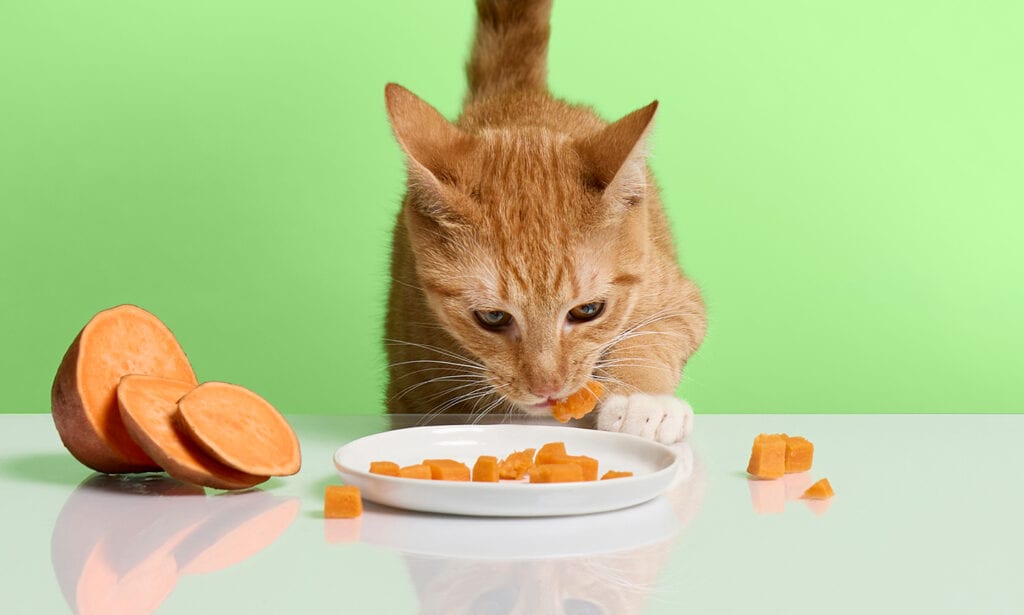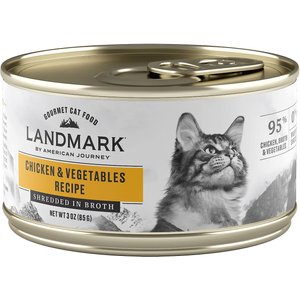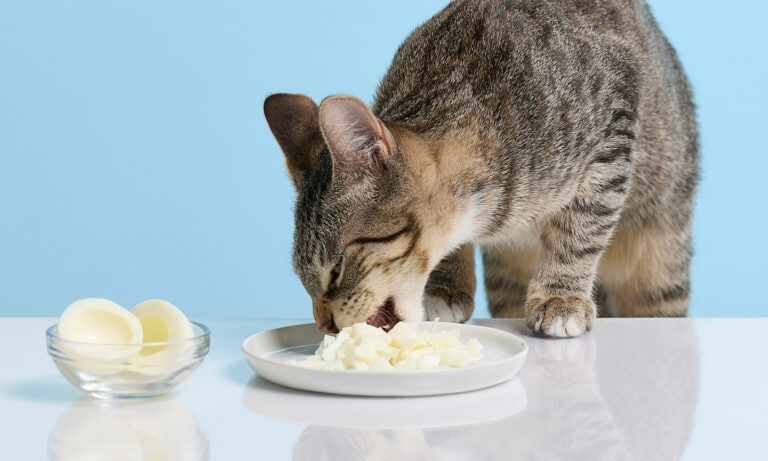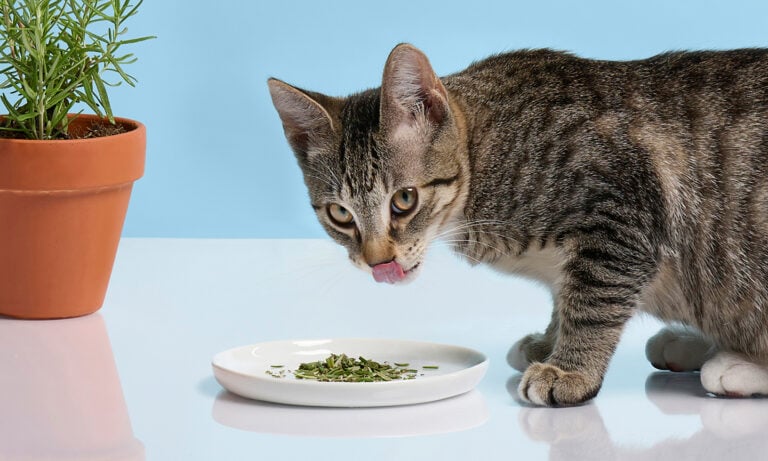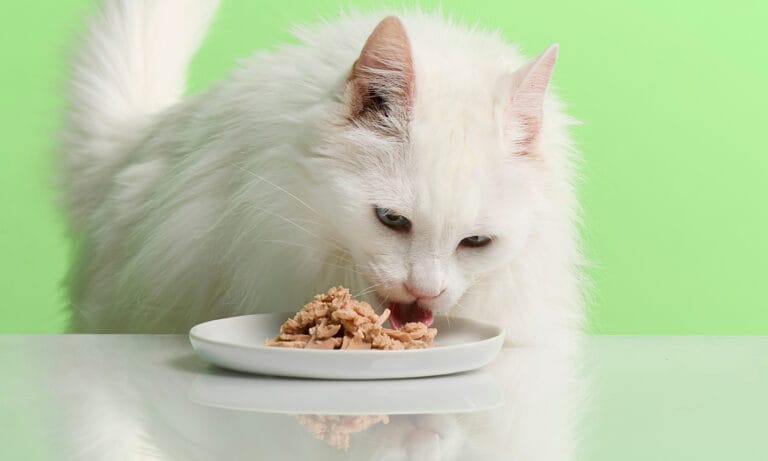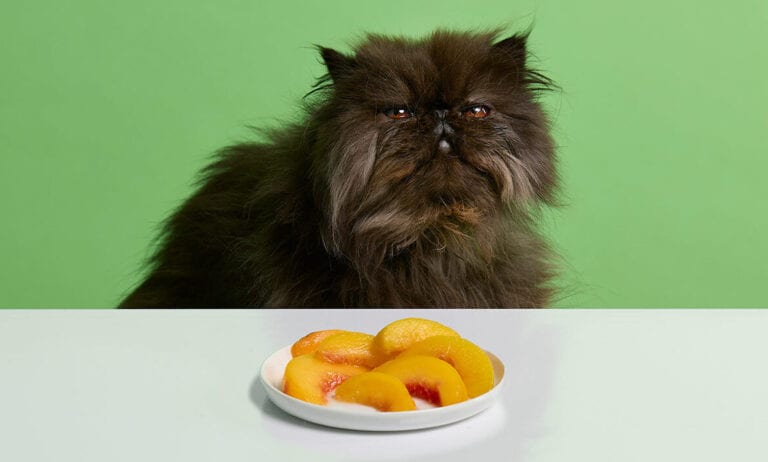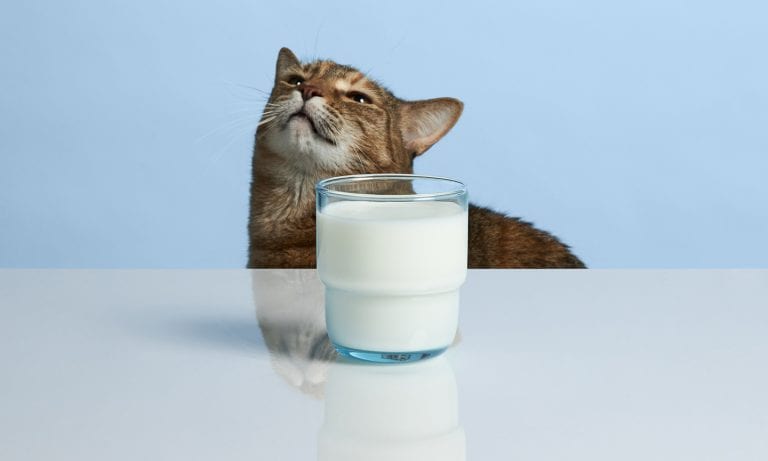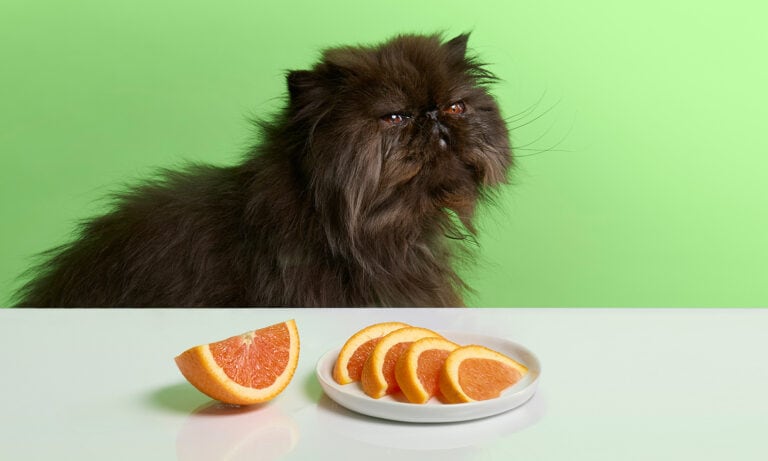As you wander down the pet food aisle, you’ll likely notice an array of dog foods featuring sweet potato as a key ingredient. While that’s a nutritional win for our canine friends, you might be wondering, can cats eat sweet potatoes, too?
The answer is somewhat layered. While the cooked flesh of sweet potatoes is generally safe for cats in small amounts, there are precautions to consider before serving this root veggie to your whiskered companion.
We spoke to a vet expert to get the details, including how much sweet potato your cat can have, potential benefits and risks, and safe ways to incorporate this orange delight into your cat’s diet.
Can Cats Eat Sweet Potatoes?
Click to jump to each section.
How Much Sweet Potato Can My Cat Have?
Moderation is crucial when offering sweet potatoes to your kitty.
For an adult cat of average size (between 8 and 12 pounds), 1-2 teaspoons of cooked sweet potato is an acceptable amount. If your cat likes the taste, giving them this size portion of this tuber once or twice a week is OK.
The rest of your cat’s nutritional requirements should be met with a balanced, meat-based cat food.
When giving sweet potato to your cat, ensure it’s just the flesh, cooked and plain—without added salt, butter or spices.
6 Ways To Serve Sweet Potatoes to Your Cat
From homemade concoctions to convenient store-bought options, here are several ways to safely offer sweet potatoes to your cat.
1Serve Plain Sweet Potato Mash
The simplest way to let your cat experience the sweet taste of this tuber is to offer a small amount of mashed sweet potato.
Here’s what to do:
- Add water to a pot and bring it to a boil.
- Peel a sweet potato.
- Cut the potato into 1-inch by 1-inch chunks.
- Carefully add the potato to the boiling water.
- Reduce to medium heat and boil the sweet potato until it’s cooked through (about 15-20 minutes until tender).
- Drain in a colander and let cool until room temperature.
- Mash one sweet potato cube and offer it to your cat. Do not add any seasonings, butter or sugar.
2Whip up a Sweet Potato 'Gravy'
This sweet potato “gravy” combines flavor and nutrition in each spoonful.
To make it, simply mix 1-2 tablespoons of mashed sweet potato with some tuna water or cat-friendly broth, like Caru Free Range Chicken Bone Broth. This is an excellent way to introduce the new flavor while mixing it with something your cat already loves.
3Make Sweet Potato Jerky
For a chewy treat that will keep your feline friend engaged, consider making sweet potato jerky.
Here’s what to do:
- Preheat your oven to 175°F.
- Wash and peel a sweet potato.
- Slice the sweet potato into thin, even pieces—about 1/8- to 1/4-inch thick.
- Lay the sweet potato slices on a parchment-lined baking sheet in a single layer.
- Place the baking sheet in the preheated oven and bake for about 2-3 hours.
- Once the sweet potatoes reach a chewy, jerky-like texture (not crispy), remove the baking sheet from the oven and let the sweet potato jerky cool down to room temperature.
- Break the jerky into small, manageable pieces suitable for your cat’s size and chewing ability (the size of a dime or smaller).
- You can store the jerky in an airtight container in the refrigerator for up to one week or freeze for several months.
4Find a Store-Bought Cat Food With Sweet Potato
For the convenience-oriented pet parent, commercial cat foods that include sweet potato are a readily available option. These formulations are balanced to ensure your cat gets all the nutrients they need.
Here are a few options:
5Make Sweet Potato Tuna Bites
For pet parents who enjoy getting hands-on in the kitchen, try making these two-ingredient sweet potato and tuna cat treats.
You’ll need:
- 1 (14 oz.) canned tuna (no salt added, tinned in water)
- 5 cups sweet potato (peeled, cooked and mashed)
Instructions:
- Preheat the oven to 350°F.
- Combine the tuna and sweet potato in a bowl, using a fork to break up larger pieces.
- Form the mixture into small balls and then flatten them into mini patties.
- Bake until lightly browned (about 20 minutes).
- Remove from heat and let cool completely.
- Serve your cat an appropriately sized piece (about the size of a dime).
- Store in the refrigerator for about four days or in the freezer for up to several months.
Note: You can also serve small amounts of the pre-baked tuna–sweet potato mixture, if your cat prefers.
As always with treats of any kind, limit serving amounts to no more than 10 percent of your cat’s daily diet. For example, if your cat needs 200 calories per day, they can have 20 calories in treats.
6Offer Store-Bought Cat Treats With Sweet Potato
For pet parents who want a convenient option without the prep work, opt for commercially produced cat treats that contain sweet potato. These treats are specially formulated to be balanced and nutritious.
Here are a couple of good options:
Benefits of Sweet Potato for Cats
Cats are obligate carnivores, meaning they get the majority of the nutrients they need from animal protein. So while they certainly don’t need sweet potato in their diet, if they like the taste, offering it sporadically is purr-fectly fine and may even provide some supplementary benefits.
Benefits of sweet potato for cats include:
May Help Relieve Digestive Problems
Sweet potatoes contain both soluble and insoluble fiber. Insoluble fiber helps absorb fluid from the intestines, which softens and adds bulk to the stool for easier passage. It also serves as a stimulant that encourages intestinal muscle activity to keep things moving. Soluble fiber, on the other hand, slows your cat’s digestion, which can help them to feel full for a longer time. It also has bulking and softening properties.
The natural water content in sweet potatoes further aids in this process, functioning as a stool softener. These effects can be useful for cats experiencing constipation or diarrhea.
Supports Hydration
If you’re preparing sweet potatoes in a way that retains some of their natural water content—such as boiling or steaming—they can contribute to your cat’s hydration levels, especially if your cat isn’t a big water drinker.
Keeps Your Cat Satisfied Longer
Sweet potatoes are a good source of resistant starch, which breaks down slowly in the digestive system. This extended digestion time allows them to stay in the stomach much longer, promoting a sense of fullness and satisfaction in your cat until their next meal.
May Offer Nutrients
While there’s debate about whether cats can extract the vitamins and minerals contained in carbs, it’s possible your cat could benefit from the many vitamins, minerals and other healthy compounds in sweet potatoes.
Sweet potatoes are rich in antioxidants like beta-carotene, which can help combat oxidative stress in the body, as well as vitamin B6, vitamin C, potassium and manganese.
Risks of Sweet Potatoes to Cats
While sweet potatoes can offer certain health benefits, it’s essential to understand the potential risks associated with feeding them to your cat.
Here are some factors to consider:
- High in carbs: Sweet potatoes are a high-carbohydrate food, and cats have a limited ability to metabolize carbs. A diet too rich in carbs can lead to obesity and potentially diabetes.
- Digestive issues: Although the fiber in sweet potatoes can be beneficial for digestive health, too much can lead to gastrointestinal issues like diarrhea or bloating.
- Dangerous additives: When prepared for humans, sweet potatoes usually contain additives such as salt, butter, seasonings like garlic and onion powder, sugar and even marshmallows. All of these additives have the potential to harm your cat, especially garlic and onion, which can cause life-threatening anemia in cats.
- Choking hazard: If not prepared properly (small, cooked pieces or mashed), sweet potatoes could pose a choking hazard or cause an obstruction, particularly for smaller cats.
FAQs About Sweet Potatoes and Cats
Q:
Can cats eat raw sweet potatoes?
Q:
Can cats eat sweet potato skin?
Q:
Why is sweet potato in cat food?
A:Sweet potatoes are often included in small amounts in commercial cat foods for texture and fiber content. They also contain various nutrients and antioxidants that may be beneficial to cats.
However, keep in mind that sweet potatoes should not be a primary food source for obligate carnivores like cats. Their inclusion in commercial cat foods is balanced with other ingredients to ensure a nutritionally complete diet.
Q:
Do sweet potatoes contain solanine?
More human foods cats can eat:
Share:
